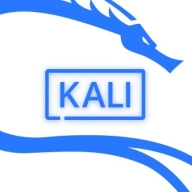

Red Hat Enterprise Linux and Kali Linux are prominent distributions in the Linux category, aimed at enterprise and security applications respectively. RHEL holds a competitive edge in enterprise environments due to its robust support and stability, whereas Kali Linux excels as a cost-effective solution for cybersecurity professionals.
Features: RHEL is distinguished by enterprise-level stability, incorporating features like SELinux for enhanced security, Ansible for automation, and seamless integration across diverse environments. Its flexibility in deployment and a strong vendor ecosystem are notable advantages. Kali Linux, in contrast, offers an extensive suite of pre-installed penetration testing tools such as Nmap and Metasploit, catering specifically to the needs of cybersecurity experts. Its open-source nature allows for a high degree of customization and flexibility in conducting security assessments.
Room for Improvement: Users of RHEL highlight the need for clearer documentation, more transparent licensing terms, and smoother third-party integration. Additionally, improved support response times and simplified patch management are areas of potential enhancement. Kali Linux could benefit from a more intuitive user interface, more comprehensive installation guidance, and increased customization options for its toolkit, as well as advancements in AI capabilities for more complex security tasks.
Ease of Deployment and Customer Service: RHEL supports a wide range of deployment options, including on-premises, hybrid, and cloud environments, backed by an extensive support network. However, response times can vary, especially with complex issues. Kali Linux primarily sees on-premises deployment and relies heavily on community support due to its open-source model, which is valuable but lacks formal, guaranteed support, potentially limiting its enterprise application.
Pricing and ROI: The pricing of RHEL reflects its feature-rich, enterprise-grade capabilities, offering substantial ROI through enhanced operational efficiency and system reliability. However, this cost might deter smaller businesses. Kali Linux, being open-source, eliminates licensing costs, making it an economical option for budget-conscious environments focused on security without the need for comprehensive enterprise support.
Integrating Kali Linux with DevOps tools has resulted in reduced operational costs due to automated test cases, making it a worthwhile investment with significant returns by decreasing the attack surface area and the frequency of attack incidents.
If we had installed it on-premises or through other means, it would have incurred significant money and effort to create the VMs, deploy it on machines, and then delete and format it after use.
I have saved time by avoiding the lag I sometimes face on the TryHackMe in-built machine, and I have learned more efficiently.
A long lifecycle is key to having a good return on investment.
Being able to transform common manual tasks that previously took all day into processes that take an hour, half an hour, or even less, demonstrates clear value.
Red Hat Enterprise Linux has saved us time and increased productivity.
Since most of the tools and other things are community-based, the documentation and other community support are very good.
Red Hat Enterprise Linux (RHEL) support is great, as they go beyond their duty to help resolve issues and provide solutions even for third-party software such as XRDP.
When we do contact customer service, they are generally very knowledgeable and well-versed in our size.
Usually, I send the information, and they have something for me within hours, sometimes even minutes.
Many of our applications scale really well, with some having several hundreds of VMs, which we couldn't accomplish on Windows.
Red Hat Enterprise Linux (RHEL) scales very well with the growing needs of our company.
Red Hat Enterprise Linux (RHEL) handles increases in users, applications, or data smoothly, which is why we use it for all our projects, as it provides us with confidence.
It works consistently with minimal downtime and very few bugs or glitches.
It just works, and that's really the key factor; I can't remember the last time we had a system go down and had to restore it due to a bad patch.
We've not had a service outage with Red Hat in six years.
If real-time customized port scanning can be added, for example, instead of a default port such as 8080 or 443, if we can use a customized port such as 9876, that capability would be great.
Making Kali Linux more customizable would allow users to personalize it to their style.
It's still advertised as a Linux distro used only for security testing, and many of the tools run as root by default or with the highest privileges.
Addressing these limitations would significantly enhance the operating system's flexibility and efficiency.
The built-in security features of Red Hat Enterprise Linux were insufficient for our needs, necessitating the implementation of supplementary security measures.
By providing pre-installed, native automation tools within the operating system, Red Hat would streamline processes and improve user efficiency.
Kali Linux is free software, an operating system that's available to download without any cost or licensing fees.
My experience with pricing, setup costs, and licensing for Kali Linux has been positive, as it operates under an open-source model.
The pricing and the deployment, resource usage are all spot on and clearly defined, making it helpful and useful for me to deploy and calculate costs.
It may be considered expensive compared to other solutions like CentOS or Ubuntu, which offer some of the same features without additional costs.
Its pricing has room for improvement because it's more expensive in the local market due to purchasing power parity in India.
Windows Servers base their cost on the number of users and have high licensing fees, while Red Hat Enterprise Linux offers free versions alongside its paid, supported versions.
Kali Linux has positively impacted my organization by improving efficiency in penetration testing; its open-source nature permits extensive customization and inclusion of numerous comprehensive pre-installed tools, contributing to a secure network environment with effective monitoring of network applications.
Kali Linux has the capability of real-time data scanning for vulnerability assessment for backend services.
The overall focus on security in Kali Linux is what I find most useful.
It also has strong security features, is OIS and FIPS certified, and has built-in Linux security configurations.
There is also no downtime.
The operating system allows for the simple addition of kernels, modules, and other applications, making it highly adaptable to various needs.
| Product | Market Share (%) |
|---|---|
| Red Hat Enterprise Linux (RHEL) | 8.6% |
| Kali Linux | 3.0% |
| Other | 88.4% |


| Company Size | Count |
|---|---|
| Small Business | 9 |
| Midsize Enterprise | 1 |
| Large Enterprise | 8 |
| Company Size | Count |
|---|---|
| Small Business | 83 |
| Midsize Enterprise | 47 |
| Large Enterprise | 249 |
Kali Linux is widely used by organizations for penetration testing, vulnerability assessments, web application security, network audits, ethical hacking, and open-source intelligence, providing extensive free features.
Organizations run Kali Linux in virtualized environments alongside other operating systems, employing tools for automated scans, malware identification, infrastructure testing, and application development or hosting. These users benefit from lower maintenance requirements and a smaller footprint. The toolset includes Nmap, SQLMap, Metasploit, and Hydra, ensuring effective security assessments. Its high scalability, performance, user-friendly interface, and extensive documentation enhance the platform's usability. Known for stability, flexibility, and virus resistance, Kali Linux supports web security, troubleshooting, and configuration tasks comprehensively.
What are the most important features of Kali Linux?
What benefits and ROI should users look for in reviews?
Kali Linux can support industries in improving security through stable and flexible environments that resist viruses and provide extensive documentation. Users employ it for web security, troubleshooting, and configuring capabilities. Necessary improvements include automation, user-friendliness, and integrating AI and blockchain. Enhancements in security features, faster installations, and better learning tools are also essential. Machine learning integration and non-enterprise user functionalities can address current limitations.
Red Hat Enterprise Linux offers stability, security, and support for mission-critical applications with robust tools and scalable architecture, ideal for diverse environments and hybrid cloud compatibility.
Red Hat Enterprise Linux provides organizations with a reliable platform ideal for high-performance computing and virtualization. Known for its robust security and seamless network administration, it integrates well with OpenShift and Ansible, ensuring adaptability and scalability. Despite challenges with documentation, upgrade complexity, and cost, RHEL remains a formidable choice thanks to its comprehensive documentation and extensive community support.
What are the key features of Red Hat Enterprise Linux?
What benefits should users look for when evaluating Red Hat Enterprise Linux?
Organizations across industries like financial services, telecommunications, and application hosting implement Red Hat Enterprise Linux for server and application management. Its compatibility with technologies such as SAP, Oracle, and Ansible supports functions including web, database, and enterprise solutions, ensuring stable and secure performance in high-pressure environments.
We monitor all Operating Systems (OS) for Business reviews to prevent fraudulent reviews and keep review quality high. We do not post reviews by company employees or direct competitors. We validate each review for authenticity via cross-reference with LinkedIn, and personal follow-up with the reviewer when necessary.